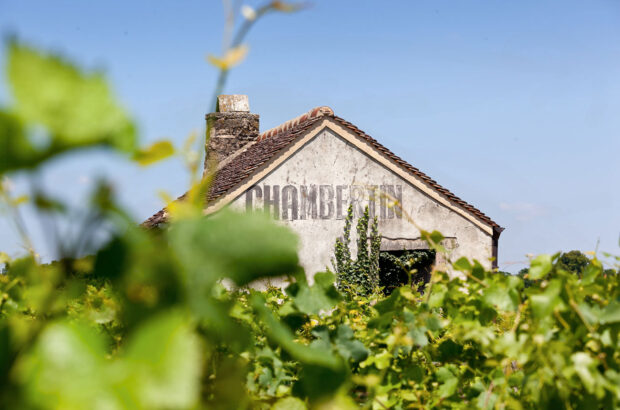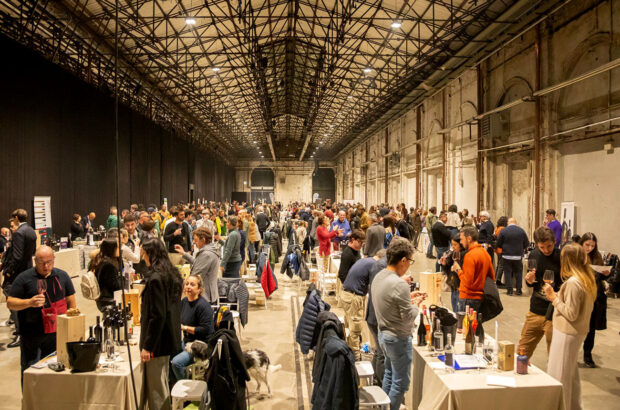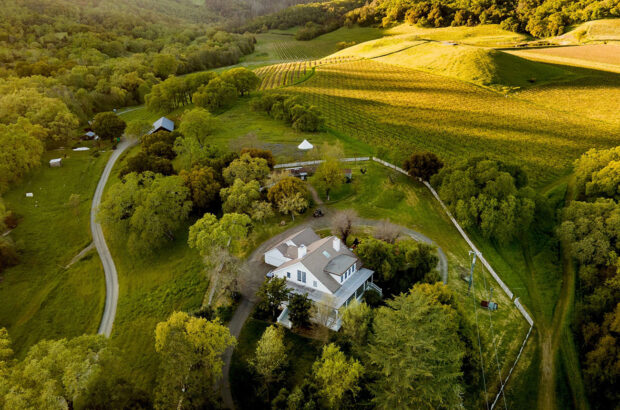Frederic Drouhin of Maison Joseph Drouhin aimed a barbed shaft at the banking industry in his opening speech at the annual tasting and lunch of the Primum Familiae Vini yesterday.
The Hugel headquarters at Riquewihr, Alsace
Miguel Torres, Baroness Philippine de Rothschild, Marchese Piero Antinori, Etienne Hugel and other titans of the international wine world, together with a group of UK wine journalists and critics, met in London yesterday at the Square restaurant.
The Primum Familiae Vini consists of eleven family-owned wine companies. The fact that some of them – the Antinoris, the Incisa Della Rocchetas and the Hugels in particular – have been farming the same land since the Middle Ages means they have several centuries of combined viticultural experience.
‘The goal of these family companies is not huge financial gain,’ Drouhin, this year’s president said. ‘Bankers have shaped the world because of short-term gains to please the stockmarket. That is not our aim.’
Instead, Drouhin said, the ‘routine generational exchange’ of expertise was what inspired the group.
‘My brother Philippe for example is a vineyard manager, and he will regularly talk to Miguel Torres. Each family exchanges information.’
Criteria for membership of the PFV, an organisation admired enough to be explicitly copied by the Australian First Families of Wine – Henschke, d’Arenberg, McWilliams, de Bortoli among others – is that a company must be family-owned and have a record of excellence.
The twelfth member, Robert Mondavi, resigned as soon as his company was taken over by Constellation in 2004. The group is now deciding whether to admit a new family, Decanter.com understands.
‘There is a big debate going on about having a New World winery,’ one member said, ‘Some people are against it, for logistical reasons as much as anything.’
During the lunch the following wines were served: Pol Roger Blanc de Blancs 1998, Montrachet Grand Cru Marquis de Laguiche 1990, Solaia 2001, Sassicaia 1996 in magnum, Chateau de Beaucastel 1990, Torres Mas la Plana 1982, Vega Sicilia Unico 1953, Chateau Mouton Rothschild 1961, Hugel Gewurztraminer Selection de Grains Nobles 1976, Egon Muller Scharzhofberger Trockenbeerenauslese 1990 and Graham’s 1963 Vintage Port.
Each proprietor gave a sentence or two about the wine. Of the Mouton, Philippe de Rothschild said, ‘We very, very rarely come out with the 1961.’ It is difficult to criticise, he added. ‘Perhaps the only thing is to say, “The ultimate music is silence”.’
Introducing the Graham’s, Paul Symington described the dereliction of the Douro in the early 1960s. ‘This was the first vintage the UK trade bought – the first time we saw the light at the end of the tunnel.’
He added, ‘This is probably the most remarkable Port ever made. Whenever we taste the 63 we think, “This is sort of wine we want to make”.’
Written by Adam Lechmere







